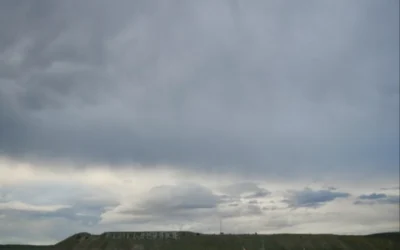This article was part of our daily news coverage. For daily updates from the KHOL newsroom subscribe to our podcast feed.
The Federal Communications Commission (FCC) launched a new “missing and endangered persons” code earlier this month for its nationwide Emergency Alert System.
It will allow law enforcement to send out messages about missing adults to the public through phones, TV and the radio. The code is part of efforts to address the Missing and Murdered Indigenous Persons (MMIP) crisis throughout the country.
The “MEP” code will help tribal, state and local law enforcement spread the word about alerts that fall outside of the criteria of AMBER Alerts for children and Silver Alerts for at-risk senior citizens. That includes missing persons identified in Ashanti Alerts, which came out of the national Ashanti Alert Act of 2018 and applies to three categories: people over the age of 17, missing adults with special needs and missing adults who are endangered or have been abducted.
The state of Wyoming passed a bill implementing Ashanti Alerts in 2023, but this new code will get those messages to an even wider audience.
Cara Chambers is the chair of the state’s MMIP Task Force. She said sending information out quickly about these kinds of cases is crucial.
“Time is always of the essence with these cases. The quicker family or loved ones are able to alert that someone is missing or an endangered person is missing, and the more eyes and ears and awareness we can get on a situation, the better. I think this is a really encouraging change and I believe it will help,” she said.
Chambers added that while it’s important to have a high bar with alerts so that the public doesn’t get desensitized by too many notifications, bringing more awareness to cases will be beneficial. And while reporting missing persons cases can be especially tricky, given that some adults choose to go missing, she said it’s better to notify law enforcement than not.
“The worst that could happen is that they locate this person and [the person] is like, ‘No, I’m fine,’” Chambers said. “If family has a reasonable belief that there is reason to be concerned, I think we take that seriously.”
According to a 2024 report from the task force, Indigenous people go missing at disproportionately higher rates than white residents in the state.
Chambers is also the director of Wyoming’s Division of Victim Services. She said it’s encouraging to see a federal acknowledgement of the crisis.
“It is not an easy task to add new alerts to the FCC, and this is kind of the gold standard of alerts,” she said.
The state’s Division of Victim Services published a report about missing adults earlier this summer. It found that, unlike many other states, Wyoming does not require law enforcement to report adult missing persons to any state or federal missing person databases.






